~ By Dr. David Reagan
(to read this article in full, go here)
I was watching a local Dallas, Texas, television station interviewing protesters in a crowd that had descended on Dallas City Hall after the killing of George Floyd. Individuals in the crowd were asked, "Why are you protesting?" Some said, "I'm protesting against police violence." But most gave an answer that really surprised me. Over and over I heard these words: "I'm protesting against systemic racism." Young protesters in the streets using an academic phrase?
Providing a Definition
Now, that is not a phrase that would naturally roll off the tongues of street protesters, nearly all of whom were in their teens and twenties. It had to be supplied by the protest organizers. I kept hoping that the TV interviewer would ask one of the people what they meant by the phrase because I was certain none of them had the slightest idea what it meant — either because of naivete or a lack of historical knowledge and perspective.
The word, systemic, is defined as something that is ingrained throughout a whole system — something that is intentional, methodical or implemented according to a plan. Thus, "systemic racism" in reference to a nation would mean that everything in the society is designed to discriminate against one or more races. The former policy of Apartheid in South Africa would be a classic example.
Now, with that definition in mind, just try to wrap your brain around the insanity of someone in Dallas, Texas, protesting against "systemic racism." The top governmental official in Dallas is the City Manager, who is a black man. Additionally, the Mayor is a black man, the Police Chief is a black woman, the District Attorney is a "progressive" black man, and the Sheriff is a black woman. The previous Sheriff, who resigned to run for Governor, was an Hispanic lesbian. I ask you, where is the "systemic racism"?
Personal Experience
I happen to know very well the meaning of "systemic racism." That's because I grew up in it. I was born in Texas in 1938, and I was raised in the 1940s and 50s when racism was interwoven in the fabric of our nation. Everything was segregated, and I mean everything — schools, hotels, sports arenas, restaurants, public transportation, movie theaters, churches and yes, even drinking fountains.
One of the most important ways of keeping blacks "in their place" was to deny them the right to vote. There were a variety of barriers to voting, like the poll-tax, which was essentially a voting fee. This technique was not outlawed until the passage of the 24th Amendment in 1964.
Grand Dragon of the Ku Klux Klan of Georgia at his investment ceremony in Atlanta at Stone Mountain on July 24, 1948. (https://en.wikipedia.org)
Always lurking in the background in many states was the Ku Klux Klan, which was more than willing to intimidate blacks from voting.
Blacks were mainly confined to manual labor jobs. Access to professions like law, medicine and teaching were highly limited. The military was segregated.
Franklin Roosevelt
The President of the United States during my childhood years was Franklin Roosevelt. Although he was a liberal icon, he did nothing to improve race relations. That’s because the key to his powerful political coalition was what was referred to as the “Solid South,” and he was unwilling to do anything that might jeopardize Southern support.
He was first elected in 1932 and was re-elected for a second term in 1936. In 1937, he had his first opportunity to nominate a Supreme Court justice. His selection was a U.S. Senator from Alabama named Hugo Black. This man had been a lawyer for the Klan and was on record as having said terrible things about Blacks, Jews and Catholics. He was confirmed easily by the Senate by a vote of 63 to 16. Can you even imagine such a person being nominated today?
Right before our nation got involved directly in World War II, President Roosevelt made his most daring decision regarding race relations. In June of 1941, he created by Executive Order the Fair Employment Practice Committee. Its assigned purpose was to prevent “discrimination in the employment of workers in defense industries or government because of race, creed, color or national origin.” But this applied only to the national government. Beyond this, the President realized he was walking on eggs, and he had no desire to break any of them.
After the Japanese attack on Pearl Harbor in December of 1941, President Roosevelt very quickly issued an Executive Order in February of 1942 that constituted one of the worst racist actions in our nation’s history. Incredibly, he ordered all Japanese Americans arrested and sent to ten internment camps located in seven states. They were kept there for the duration of the war. This was obviously a very racist decision since no similar action was taken against Americans of German heritage despite the fact that we were also at war with Germany.
The President’s highly unconstitutional action was upheld by the Supreme Court in December 1944 by a vote of 6 to 3. Justice Hugo Black wrote the majority opinion. Again, can you even imagine something like this happening in America today?
Personal Experiences with Racism
Although I am a white man, I have personally experienced the emotional pain of racism three times — twice as a child and once as an adult. The first occasion occurred in 1948 when I was ten years old. One of my dad’s younger brothers came to visit us in Waco, Texas, for a couple of weeks. He had worked during World War II in the Pearl Harbor shipyards in Hawaii. During that time he had met and married a beautiful and very sweet lady of Asian descent who had been born and raised in Hawaii. Her name was Rosie.
One Saturday while they were visiting with us, it was decided, for some reason I can’t remember, that I should take Rosie downtown and accompany her while she was doing some shopping. So, we took the bus and spent the morning going from store to store. As noon approached, Rosie asked if I knew where we could get a sandwich before returning home. I told her I knew where there was a soda fountain.
When we arrived, there were two stools available that were adjacent to each other, so we sat down and waited to be served. And we waited and waited and waited. Finally, I grew impatient, so I leaned across the bar and grabbed the arm of a waitress who was walking by. I said, “Ma’am, we’ve been waiting a long time. Could you take our order?” She stepped back, looked at my aunt and then back at me. Then, she snarled, “I don’t serve Japs!” I was embarrassed and enraged, but before I could say anything, Rosie put her arm around my shoulders and whispered, “It’s okay, David; let’s go home.”
Two years later, in 1950, my parents bought a very nice new home in Waco in a very upscale part of town. The house had a detached garage, and above the garage was an apartment. My folks proceeded to rent the apartment to an Asian couple.
Over the next few weeks, my parents received a series of nasty phone calls and hate letters condemning them for renting to Asians. The neighborhood kids picked up on their parents’ attitude and started harassing me, calling me a “Jap lover.”
My worst experience with racism came ten years later in 1960, when my new wife and I moved to Boston, where I was going to attend a Harvard graduate school. We had arranged to stay the first week with a pastor and his wife while I searched for an apartment.
The first morning after our arrival, I surveyed the apartment ads in the Boston paper, selected the ones that were in my price range and started calling. What happened next was something I could not understand. As soon as I would start inquiring about the apartment for rent, the person on the other end of the line would either hang up or interrupt me by saying, “It’s already been rented!” This happened over and over, and it continued the second day. I could never get past my opening words.
Finally, on the third day, I ran across a brutally honest person. He yelled, “I don’t rent to niggers!” That’s when it dawned on me that my Southern accent was my problem. Again, this was 1960 when regional accents were still very strong, before they began to be leveled out by national television. So, I had to start going personally to seek an apartment. Still, what I experienced was nothing compared to a black person who could not even go personally.
That was not the end of the matter. Over the following three years, I came to the realization that Boston was the most outwardly racist city I had ever lived in. The Italians hated the Irish, and the Irish reciprocated. Both of those groups seem to hate Blacks and Jews. When the movie, Exodus, opened in Boston in 1960, hundreds of people demonstrated against it in the street in front of the theater because the film was favorable to the Jewish people.
The Turning Point
That was America in 1960 — characterized by real systemic racism to the nation’s core.
The first real chink in the armor of that entrenched system occurred in 1954, when the Supreme Court outlawed segregation in public schools. Up to that time, the rule had been “separate but equal.” The states recognized the separate part of this equation, but gave the equal part little attention. Thus, schools for colored children were usually run down and poorly equipped.
It soon became very apparent that a court decision was worthless without enforcement follow-up. Thus, nine years later, in 1963, Governor George Wallace of Alabama was still proclaiming, “segregation now, segregation tomorrow, segregation forever.” Wallace backed up his words by standing in the door of a building at the University of Alabama campus in Tuscaloosa, refusing to allow two black students to enter. President Kennedy had to call out the National Guard to get the students in the school.
Praise God, the tumultuous decade of the 1960s would prove to be the real turning point in the fight against systemic racism in America. First came the Civil Rights Act of 1964 which outlawed racial discrimination in schools, employment and public accommodations. The bill had been proposed by President Kennedy, but he was unable to get it through Congress. His assassination in November of 1963 changed the political system. His successor, President Lyndon Johnson, called on the Congress to pass the bill as a memorial to Kennedy.
The Civil Rights Act was revolutionary, but its provisions concerning voting were very weak. For example, it did not eliminate literary tests. It just specified that all rules and regulations concerning voting had to be applied equally to all races. There was no recognition of a “right” to vote, and therefore the concept of qualifying to vote in some way was left in place.
This serious problem was addressed the next year in the Voting Rights Act of 1965. It guaranteed the right to vote to all racial minorities. Many legal experts consider this bill to be the most effective civil rights legislation ever enacted in the history of our nation. Its purpose was to enforce the rights guaranteed in the 14th and 15th Amendments of the Constitution. The 14th Amendment, adopted in 1868, guaranteed “equal protection under the law;” the 15th, adopted in 1870, prohibited states from denying the right to vote based on “race, color or previous condition of servitude.” Yes, these vital freedoms had been in our Constitution since the Civil War, but they had not been enforced.
The guarantee of the right to vote was the nail in the coffin of systemic racism. It would be only a matter of time before minorities of all colors would be elected to important public offices throughout our nation, culminating in the election of Barack Obama as President in 2008.
This stamp was issued by the U.S. Postal Office in 1999 to commemorate Dr. Martin Luther King, Jr.’s “I Have A Dream” Speech. (i-Stockphoto.com)
The Key Element
The key factor in accomplishing these major legal victories against racism was the Civil Rights Movement led by Dr. Martin Luther King, Jr. from 1955 to his death in 1968. He was an ordained Baptist preacher who believed very strongly in non-violence. He therefore advocated peaceful civil disobedience.
Yes, there was a lot of violence associated with his movement, but his protesters were not the source of the violence. Rather, the violence was directed toward them on the part of white racists. In fact, the willingness of his followers to be beaten in behalf of their beliefs, without retaliation, was what began to turn the tide of public opinion in America.
Luther’s movement climaxed on August 28, 1963 with a rally at the Lincoln Memorial in Washington, D.C. This was the historic occasion when he delivered his incredible, “I Have A Dream,” sermon. In that sermon, he presented his dream for an America of racial equality. Eight times he proclaimed, “I have a dream…” The most memorable was when he said:
I have a dream that my four little children will one day live in a nation where they will not be judged by the color of their skin but by the content of their character.
He concluded the sermon by saying that he was dreaming of the day when “all of God’s children, black men and white men, Jews and Gentiles, Protestants and Catholics, will be able to join hands and sing, in the words of the old Negro spiritual, ‘Free at last! Free at last! Thank God Almighty, we are free at last!'”
The Need for Historical Perspective
So, where are we today with regards to racism? Systemic racism is dead. The legitimate protesters in our streets today who are denouncing systemic racism are too young to appreciate how far this nation has come since 1960. Instead of condemning our nation, they should be celebrating its freedom and its advancement for racial equality. And they need to realize that the great accomplishments of the Civil Rights Movement were gained peacefully under the leadership of a Baptist preacher who believed in non-violence.
They also need to realize that if systemic racism was still a reality, millions of white Americans would not have been outraged by the killing of George Floyd, and the policeman responsible would not have been arrested and charged with a crime.
As for those protesters who have resorted to violence, most are thugs and hoodlums who could care less about racial equality. They just want to ride the issue as an excuse to loot and burn to satisfy their greedy and irresponsible hearts. And then there are the anarchists who desire to exploit the issue as a way of venting their fury against law and order and Judeo-Christian values.
Does the elimination of systemic racism in our nation mean that there is no lingering aspects of the problem? No! There are still racists in our nation among all groups. White people do not have any exclusive franchise dealership on racism. There are black racists. In fact, the two loudest racist voices in America today are both blacks. They are Louis Farrakhan and Al Sharpton.
Police Reform
So, if systemic racism is dead in America, what is the problem with our police departments? Well, first of all, the vast overwhelming majority of police in this nation are responsible officers. They are not racists, and they do not get up every morning looking forward to shooting someone. And when they do shoot a black person, it is by no means automatically an action of racism.
The police officers of our nation constitute our first line of defense against barbarism. Every day they have to deal with some of the worst elements of our society. Their lives are often at risk, and they often find themselves in dangerous situations that require split-second decisions. They can certainly make mistakes, but they must always be given the benefit of doubt.
The last thing in the world we need to do is “defund the police” or “abolish the police.” These are idiotic ideas that can come only from either very naive minds or depraved minds. What we should be doing, instead, is to provide the police increased funding to be used for more extensive and in-depth training.
I have actually heard “progressives” proposing that police be replaced with psychological counselors! Do these people really believe a counselor can control a hardened criminal by giving him a big bear hug and telling him that we love him?
Are there reforms that are needed? Of course, there are. For example, we need to establish a national computer base that identifies police who have been dismissed for improper conduct or who have been convicted of crimes. That would stop bad apples from silently transferring from one police department to another.
Police candidates need to be screened more carefully, and they need to be given specific training in how to peacefully diffuse highly volatile situations.
A Basic Problem
Some people respond that the majority of police must be racists because so many more blacks are arrested each year, totally out of proportion to their population. That is true, but that does not mean the cops are racists. It’s due, instead, to the fact that a disproportionate amount of crime is committed by blacks.
And why is that? I would argue that it is due to the collapse of black families, resulting in young blacks growing up in dysfunctional households where they have no male parent. Thus, we have the startling statistic that 77% of black children today are born into a home without a father.
Another Aspect of the Problem
The most important factor in all this — applying to blacks and whites and citizens of all colors — is that there is a famine of the Word of God in our land today (AMOS 8:11).
We have kicked God and His Word out of our public schools and the public arena. Church attendance has fallen to an all time low. Parents are distracted and are neglecting moral training. And our kids are being bombarded on television and the Internet with violence, blasphemy and immorality. The result is that we have raised a whole generation of moral pygmies who are willing to kill each other over a pair of tennis shoes.
The Answer to Racism
During the 2016 presidential campaign, Franklin Graham went to every state capital in our nation to hold a prayer rally. He was not there to endorse any party or candidate. He just wanted people to join him in praying for our nation. He began each rally with the same words: "I have no hope in the Democratic Party, and I have no hope in the Republican Party. Zero hope. Our only hope is God."
Franklin Graham was 100% correct with these insightful words. The answer to continuing racism in our nation is not politics or violence or socialism. The answer is Jesus. That's because He transforms hearts and turns haters into lovers.
The Problem with the Solution
I know that some of you will respond to this assertion of mine by saying, “If that’s true, then why did so many pastors and Christians defend slavery before the Civil War and segregation after the War? I can think of three reasons: 1) Social Pressure, 2) Religiosity and 3) Spiritual Weakness.
What I mean by “Social Pressure” is that many were intimidated into being silent about racism. The pastor who wanted to speak out feared losing his pulpit. The laymen feared losing friends and jobs.
This type of intimidation is still alive and well today. Consider the Christians in the limelight who are caving in to social pressure — people like sports stars, movie actors and singers. Over and over again we see them speaking out in behalf of some Christian value — like opposition to abortion or sexual perversion — only to watch them then fast-track backward, apologize and ask for forgiveness when they are attacked for expressing their Christian viewpoint.
A second and more important reason that so many Christians were silent is because of what I call “Religiosity.” By this, I mean that many professing Christians over the years, and today, are not really Christians. They are just caught up in religion. They are what I call “Cultural Christians,” or, “Christians-in-name-only.”
This is so true of our nation today. About 65% of Americans claim to be Christians. But most of them are simply professing Christians who have never been born again, who never read their Bibles, who never pray and who hardly ever attend church. The result is that public opinion polls show that only 17% of professing Christians are “Bible-believing.”
The third reason for the failure of Christians to stand against racism is a very sad one. It is what I have labeled “Spiritual Weakness.” I’m speaking of the fact that many true, born-again Christians are actively grieving the Holy Spirit within them. Yes, the Holy Spirit can be grieved (EPH 4:30), and He can be quenched (1 THESS 5:19).
The purpose of the indwelling of the Holy Spirit within true believers is to shape and mold them into the image of Jesus. But the believer retains his free will, and he can resist the efforts of the Spirit to cleanse him of all his evil thoughts and practices.
Let us pray that every Cultural Christian in America will get serious about their faith and truly receive Jesus as their Lord and Savior. And, let’s pray that all true Christians will surrender their wills to the Holy Spirit, enabling Him to cleanse their hearts of any racism.
One other thing — keep in mind that despite these Christian failures in the past, many of the abolitionists were very outspoken Christians. The abolitionist movement in England was led by a Christian named William Wilberforce, and the modern civil rights movement in our nation was led by a Baptist preacher, Martin Luther King, Jr.
A Warning
When responding to racial issues, Christians need to be salt and light, speaking out in behalf of righteousness. But Christians also need to be discerning. I'm issuing this warning because Christians tend to think the best of everybody, and this naivete often gets them in a lot of trouble.
Take the Black Lives Matter organization, for example. No Christian should be affiliated with it in any way. Just check out its website and you will see that it is a radical left-wing socialist organization that opposes the biblical view of marriage and supports the Sexual Perversion Movement. Its leaders are committed to violence, and they are virulently anti-Semitic.
Now, notice, I did not say avoid identifying with the slogan, "Black Lives Matter." I'm speaking, instead, of the BLM organization. It is an abomination that is fomenting racism by playing the race card with respect to every event it possibly can.
For more about what the organization Black Lives Matter believes, watch the following videos or read the blogs from our Prophetic Perspectives series:
BLM on Systemic Racism: Watch | Read
BLM on Redefining Justice: Watch | Read
BLM on Dismantling Gender: Watch | Read
BLM on Dismantling the Family: Watch | Read
The Sanctity of Life
Do black lives matter? Or course they do! In fact, all lives matter, including precious babies in the wombs of their mothers.
And that concern for life should also apply to the elderly and the increasing efforts to get states to pass laws legalizing euthanasia. I have always said that if a society will allow parents to pay doctors to kill their children, the day will come when children will be allowed to pay doctors to kill their parents.
All human beings are created in the image of God (GEN 1:27). That image is sacred. Life is sacred (DEUT 30:19).
I [the Lord God Almighty] call heaven and earth to witness against you today, that I have set before you life and death, the blessing and the curse. So choose life in order that you may live, you and your descendants… (DEUTERONOMY 30:19)
___________________________________________________________________________
Note from James: With all of the strife and dissention between so-called "races" the obvious fact of being truly only one race - the human race - is being intentionally ignored by Marxist Socialists who are using people of color as their unwitting tool in order to create chaos, to better serve the needs of these Globalists, who also promote Transgenderism, LGBTQ and other social influences in order to break down the Judeo-Christian ethic and biblical Christian influence on said society. Biblical Christianity is truly the enemy of Marxism.
Let the truth of Scripture be understood - we are ALL the children of Adam, we are ALL of us made from the same blood (ACTS 17:26)!
~~~~~~~~~~~~~~~~~~~~~~~~~~~~~~~~~~~~~~~~~~~~~~~~~~~~~~~~~~~~~~~~~~~~~~~
UPDATE (7/10/2021) Albert Mohler and Southern Baptist Convention approves Resolution 9, endorsing Critical Race Theory as a mandate that the church must address and rectify the supposed failures of society because of systemic racism.
end of update

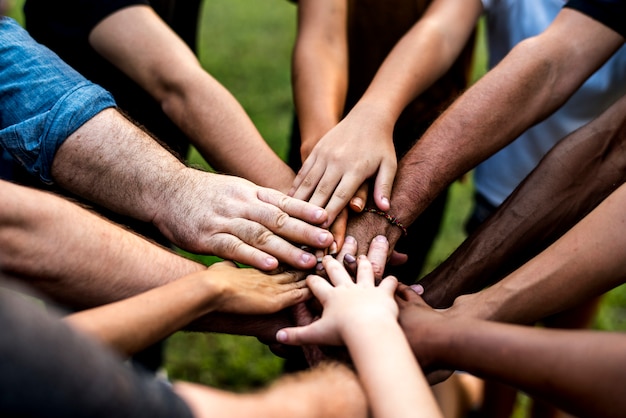
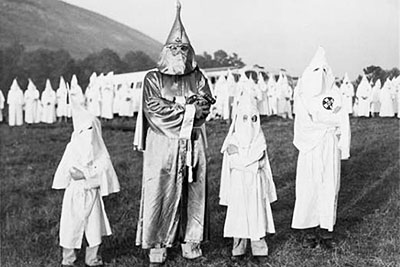
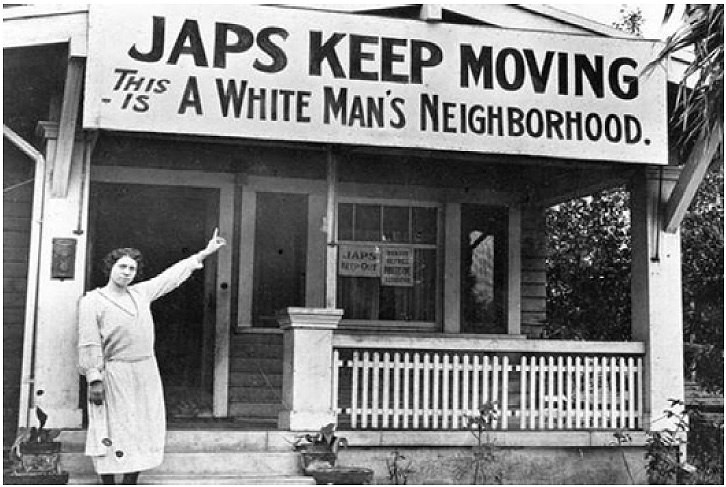
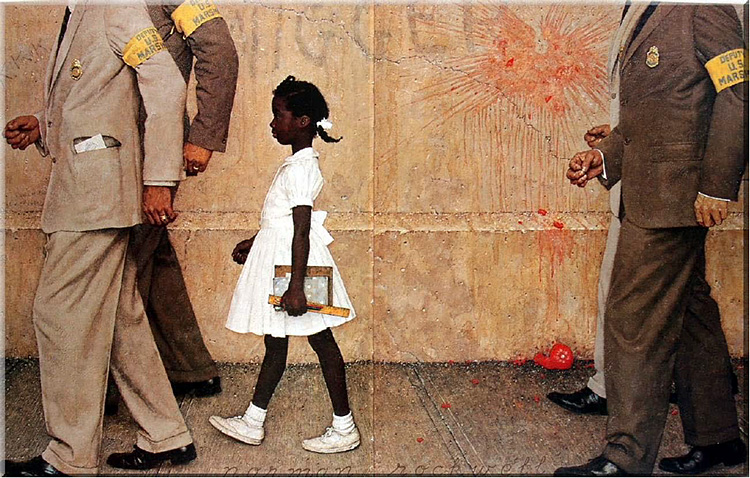
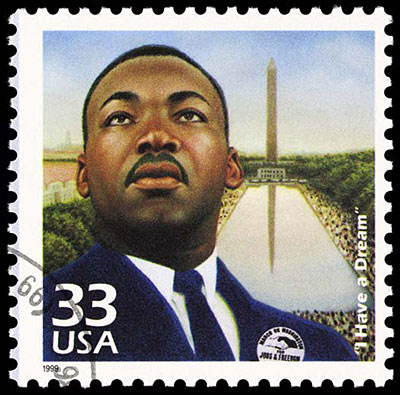
No comments:
Post a Comment